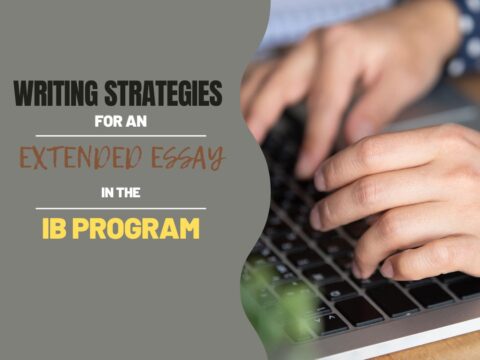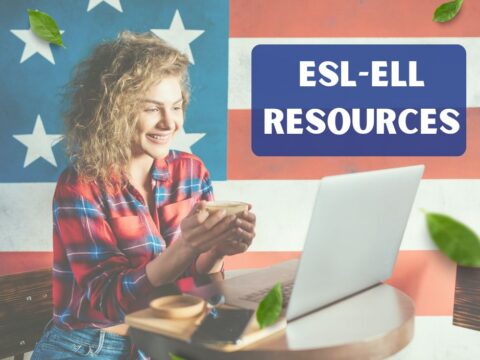Surprisingly, learning a foreign language has a set of guidelines that–if followed–are pretty good predictors of success. I didn’t know this, wish I did in the years I struggled through Russian. The Ask a Tech Teacher international team has put together a list for you. These aren’t online tools or books, but mental conscripts that will get you where you want to be with more efficiency and less pain:
The Secret to Learning English and Other Foreign Languages Faster
Mastering a new language can be a transformative journey, opening doors to new cultures, opportunities, and personal growth. For many, the challenge of learning a foreign language like English may seem daunting, but with the right strategies, the process can become both efficient and enjoyable. By adopting effective techniques, such as immersion, using media, and leveraging online resources, anyone can accelerate their language learning journey.
The Importance of Language Learning Techniques
Learning a foreign language is not just about memorising vocabulary and grammar rules. It requires consistent practice and engaging methods that make the process dynamic and interactive. The key to success lies in choosing techniques that align with your personal learning style and goals. For those preparing for specific challenges, like an English presentation, using targeted approaches can make a significant difference in confidence and fluency.
Immersion: Surround Yourself with the Language
One of the most effective ways to learn a new language is through immersion. Surrounding yourself with the language in real-life situations helps you absorb its nuances naturally. Immersion can take many forms, from travelling to a country where the language is spoken to participating in local events or cultural activities. Even without travelling, you can create an immersive environment by speaking with native speakers, joining language exchange programs, or attending community events.
Immersion not only enhances listening and speaking skills but also builds a deeper understanding of cultural context. For learners of English, practising in real-world scenarios—whether at a market, in a meeting, or during a casual conversation—can solidify language skills more effectively than studying in isolation.
Using Media for Language Learning
Incorporating media into your language learning routine is another powerful technique. Watching films, listening to music, or following podcasts in your target language exposes you to native pronunciation, slang, and idiomatic expressions. Subtitles can provide additional support, allowing you to connect written and spoken forms of the language.
For English learners, consuming media in different formats can also help prepare for specific scenarios, such as delivering an English presentation. Watching professional speeches or presentations in English, for example, provides valuable insights into tone, vocabulary, and structure, helping you build confidence and improve fluency. Media-based learning is not only effective but also enjoyable, making it easier to stay motivated.
Leveraging Online Resources
The internet offers an abundance of tools and platforms designed to support language learning. Online tutors, interactive courses, and language apps provide structured lessons and opportunities for practice. Resources like Preply, for instance, offer personalised lessons that cater to your specific needs, whether you’re preparing for a test, enhancing conversational skills, or mastering professional vocabulary.
Using online tools allows you to learn at your own pace and tailor your experience to fit your schedule. Video conferencing platforms enable learners to connect with native speakers from anywhere in the world, fostering real-time interaction and immediate feedback. For professionals working on their English presentation skills, online resources often include specialised modules that focus on business communication and public speaking.
Different Methods to Learn a New Language
Every language learner is unique, and finding the right combination of methods is essential for success. Some people thrive on structured lessons and textbooks, while others prefer a more hands-on approach through conversation and practice. Combining methods—such as self-study, group classes, and interactive tools—can provide a well-rounded learning experience.
For example, self-study offers flexibility and independence, allowing learners to focus on specific areas of interest. Group classes provide social interaction and motivation, creating a supportive community of fellow learners. Interactive tools, such as flashcards or language games, make the learning process engaging and help reinforce vocabulary and grammar through repetition. By exploring various methods, learners can create a personalised approach that suits their individual needs and preferences.
The Role of Consistency and Practice
Consistency is the cornerstone of successful language learning. Regular practice ensures that you retain what you’ve learned and build on your progress. Setting achievable goals, such as learning a certain number of new words each week or practising speaking for a set amount of time daily, helps maintain momentum.
Practising in context is equally important. For instance, if you’re preparing for an English presentation, rehearsing your speech multiple times in front of a mirror or with a trusted friend can significantly enhance your confidence. Incorporating real-life scenarios into your practice routine ensures that your language skills are practical and applicable.
A Statistic to Inspire Your Language Learning Journey
Research highlights the growing demand for multilingual professionals, with English often taking centre stage in global business communication. It is estimated that a significant percentage of the global population is learning English, reflecting its importance as a tool for international success. This statistic underscores the value of investing in language skills, whether for personal growth or professional advancement.
Why Language Learning Matters
Learning a new language is more than just acquiring a skill; it is an opportunity to connect with others and expand your horizons. English, in particular, serves as a bridge in professional and social settings, enabling people from diverse backgrounds to communicate effectively. For professionals, mastering English can lead to new career opportunities, stronger relationships, and a deeper understanding of global cultures.
For anyone embarking on the journey of learning English or another language, the key is to stay motivated, embrace challenges, and celebrate small victories. Each step brings you closer to fluency and the confidence to excel, whether it’s during an English presentation or a casual conversation.
Learning a foreign language doesn’t have to be overwhelming. By using effective techniques like immersion, engaging with media, and leveraging online resources, anyone can accelerate their progress and enjoy the journey. Whether you’re preparing for a specific challenge, such as an English presentation, or simply looking to expand your skills, the right strategies can make all the difference. Remember, consistency and practice are the keys to success—and the rewards of mastering a new language are limitless.
Here’s the sign-up link if the image above doesn’t work:
https://forms.aweber.com/form/07/1910174607.htm
“The content presented in this blog are the result of creative imagination and not intended for use, reproduction, or incorporation into any artificial intelligence training or machine learning systems without prior written consent from the author.”
Jacqui Murray has been teaching K-18 technology for 30 years. She is the editor/author of over a hundred tech ed resources including a K-12 technology curriculum, K-8 keyboard curriculum, K-8 Digital Citizenship curriculum. She is an adjunct professor in tech ed, Master Teacher, freelance journalist on tech ed topics, and author of the tech thrillers, To Hunt a Sub and Twenty-four Days. You can find her resources at Structured Learning.







































I did not know a lot of this either, but I knew about the effectiveness of immersion. After eight years learning English in Swedish school I could barely speak English. Apparently my efforts were quite often amusing. After six months as an exchange student in the US I was pretty much fluent, well except for my accent that never went away. Being surrounded by the language makes a big difference.
These are good basic steps for language learning. I am always intrigued by the focus from my international blog group.